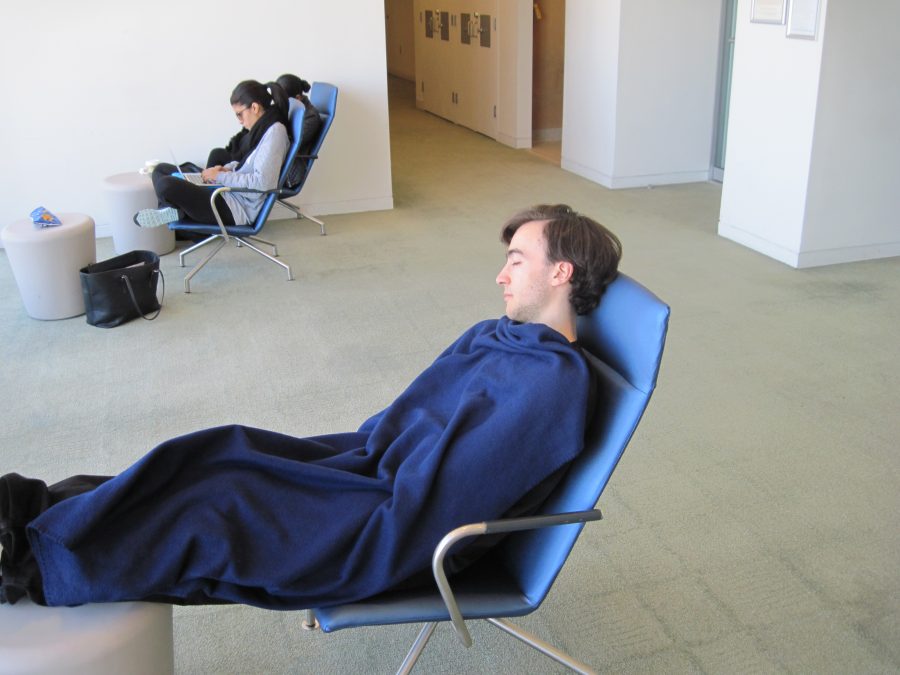It’s one of the most pressing public health issues facing college campuses today, but it’s often portrayed as a humorous anecdote or viewed as a mere inconvenience. In classrooms and dining halls across the country, countless students, faculty members, and university employees are visibly struggling with it, yet appear helpless and incapable of solving it.
It often leads to crippling side effects such as memory impairment, increased weight gain, decreased academic performance, and an increase in mental health issues. Problems no college student—or any individual—can afford to have at any time in their lives. If it is not properly addressed over time, it may lead to a lifetime of compromised decision-making and overall lethargy, which is not only detrimental to the individuals plagued with it, but to contemporary society at large. You might unknowingly be afflicted with it right now.
The problem, quite simply, is sleep deprivation. Some college students are not getting the amount of sleep they need to properly function on a purely biological level, academics notwithstanding. According to the National Sleep Foundation, people over the age of 18 need to be getting between seven and nine hours of sleep per night.
Given the fact that most of the students on the University of Massachusetts Boston campus either have a full course load or are working while taking classes or both. It can be confidently assumed that most, if not all, of the students here are sleep deprived in some way or another. Most of the medical studies done regarding sleep deprivation consistently produce results indicating that lack of sleep has a strong correlation to debilitating consequences on the mental and physical well-being of the human body and mind.
These are not the sort of ailments that college students should be facing when trying to complete coursework or simply pay attention in class. Nothing outside of plagiarism or asking questions that can be answered by reading the syllabus infuriates faculty members more than students falling asleep in class. It can be interpreted as an open act of disrespect and inconsideration for the instructor’s effort and time, which may negatively impact how well the student does in the course. It’s a lose-lose situation for everyone.
While there is no permanent solution to this problem (besides getting more sleep, which is not possible for a large number of people), there is the potential to provide some alleviation and basic support to those who are sleep deprived.
Members of student government and all other bodies of power who represent student interests and needs should look into installing nap rooms equipped with ergonomic sleep pods on campus for students, faculty members, and other university employees to catch up on rest. The concept of a nap room equipped with individual sleep pods has gained traction in recent years as workplaces and universities across the world have experimented with the idea as a way to combat the effects of sleep deprivation.
Studies indicate that a power nap of 30 minutes or less can help alleviate some of the symptoms of sleep deprivation and revitalize the body and mind. The opportunity to recharge and approach the rest of the day with a renewed sense of purpose and vigor is one that this university should look into providing for the Umass Boston community.
There are also the options of offering more courses throughout the day or lessening the amount of coursework for each class, but that would require an extensive restructuring of each department’s curriculum. That’s a lot of time and effort simply to give more students the opportunity to catch up on sleep. Instead of supplying an endless number of caffeinated sugary beverages and a few plush seating arrangements, the university could be giving sleep deprived members of its community a far more beneficial and healthier alternative by providing them with the bedding and privacy needed to get some much-needed shut-eye.
Naturally, there are some legitimate arguments that can be made against this proposal. There are especially valid points regarding how proper sleep conduct would be enforced in the nap rooms and what to do if individuals decided to use the nap rooms for reasons other than sleep.
Perhaps these concerns can be addressed by trusting the student body and the rest of the university community to use the nap rooms for what they’re intended to be used for, and cancelling the program if the concept of the nap room is abused. By viewing the nap room as a privilege instead of a right, the university community could benefit from its use, which might lead to an increase in activity and productivity on campus.
If the nap rooms do serve their purpose and the university community benefits from their existence, then maybe more steps can be made to tackle other public health issues on campus, such as the excessive amount of junk food in the vending machines or the lack of a smoking room for the noticeable smoking population on campus. Now those are issues we could all sleep on.





















































